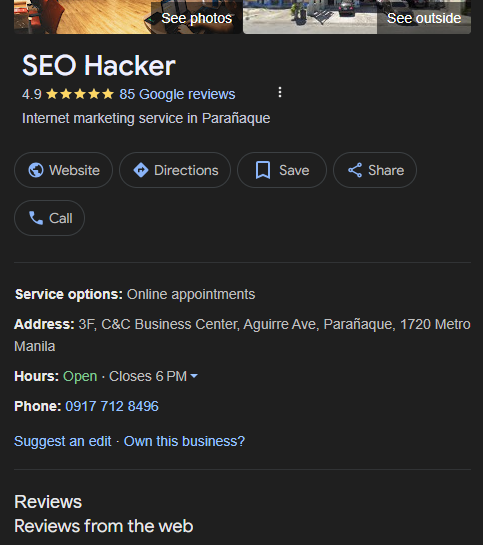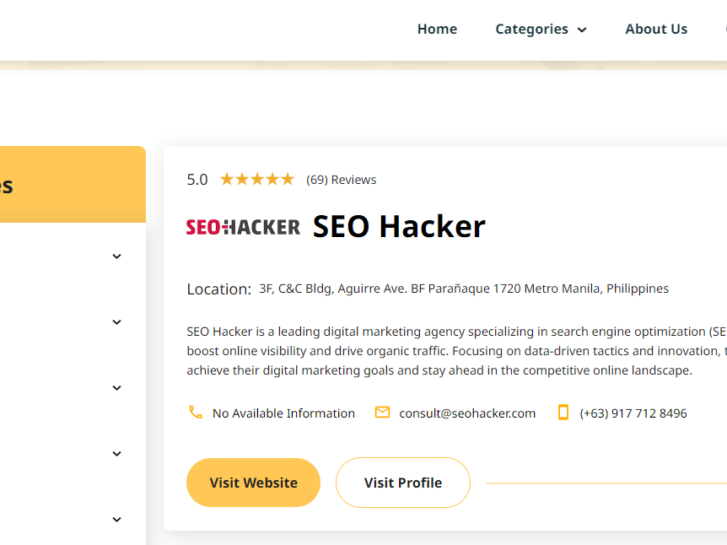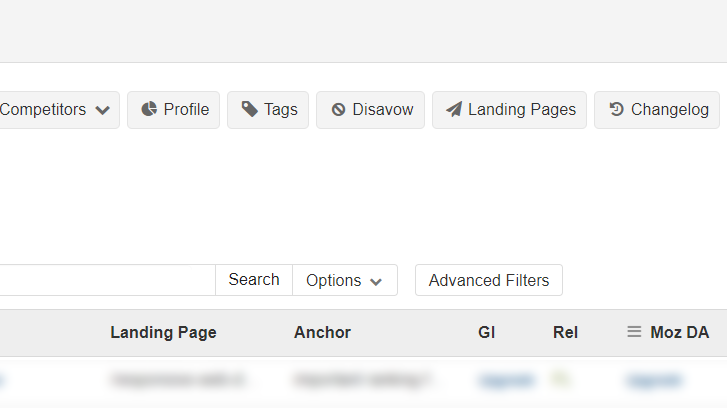Local Link-Building Tips to Boost Your SEO & Search Rankings
Local search is everything for businesses – 30% of all Google searches are location-related, and 76% of people who search for a local business visit them within the day. Your company not only needs to be visible on local search but rank at the top of the snack pack if you want to capture this market.
To get there, investing in strategic local link-building is a must. It’s what will set your business profile apart from all of the others on Google’s index. Here, I go over five local link building tips to help you achieve just that.
Webmaster’s Note: If you need help with Local SEO and setting up your Google My Business account, I have other guides you can follow before starting on this step of your SEO strategy.
What is Local SEO Link Building?
Before getting to the nitty-gritty of how to build links for SEO, let’s talk about what link building is.
Link building is creating backlinks from other websites, pointing back to yours. Think of each link as a vote of confidence, telling search engines like Google that this website thinks your website is credible and authoritative.
Local link building is just that, focusing on creating those backlinks from other websites in your area or community. Local backlinks are proof to Google that your business is trusted in your area, making it crucial if you want to raise your position on local search results.
Local Link-Building Tips
Now that you know the basics, here are my tried and tested local link building tips to get you rising to the top of the local snack pack:
Optimize Your Google My Business Profile

The most important part of the local SEO process is your Google My Business (GMB) profile. Ensure that all information is correct and up to date: business name, address, phone number, website. Post regularly regarding promotions, events, and the introduction of new products to your business. This will make you more visible in the local search results and entice local sites to link back to your GMB profile.
Hold Special Events and Promotions to Get PR Links

Events, promotions, and even collaborations with other businesses in your locality are great ways to drum up more opportunities for links. Plus, they give you the opportunity to build relationships with other businesses and build up your brand. Here are some event ideas that can make this happen:
- Sponsor an Event: Community and industry engagements can be done in several ways, such as sponsoring events. The plan will not only increase the visibility of your brand but also acknowledge your business as one standing for local initiatives and the advancement of industries.
- Host Workshops: Organize workshops related to your business. This is an invaluable platform to establish your authority in front of potential clients and to engage with them on a more substantial level with your target market. Workshops can also result in valuable networking.
- Host a Charity Fundraiser: Fundraising events for charity drive in eyeballs and create a lot of good feelings. Such charitable events align your brand to create a positive image, reach out to the local community, and draw in some media coverage; all of these facilitate link-building.
Publicize these through social media channels, blogs, or even in community groups to maximize the impact of such events. This will not only spread your words around but also create multiple avenues for generating backlinks to enhance your online presence.
Get Listed in Local Business Directories

Probably the best local link-building tip is to implement your business into local directories. About 94% of all customers have scouted a business directory for more details about a company. You can beef up your local SEO campaigns with these directories so that more consumers are directed to your business. Some of these top listings include:
- Google Business Profile
- Yelp
- Business List PH
- Dun & Bradstreet
- Top.org.ph
- Best.org.oh
Not only that but there are more places to get even more exposure when you take into consideration niche or local directories. Run a simple Google search that is aligned with your industry or location for more additional places to list your business.
Getting your business on these platforms is just the first step. The next thing to do is ensure that your listing has complete contact information as well as accurate, well-written descriptions of your business. Optimizing your directory profiles with the proper keywords and descriptions can really help drive more potential customers to you.
Use SEO Tools to Get to and Target Your Competitors’ Backlinks

Very often, knowing what your competition has in their backlink profile will shed some light on an avenue for link building. Here is how to leverage tools like Linkody to get to those competitor backlinks:
- Research the Competition: Identify your local top-ranking competitors who happen to be in the same industry. You will need to have an idea of who your main competitors are as knowing them will help you identify where they get their backlinks or strategies.
- Backlink Analysis: Tools of SEO can be leveraged for the analysis of their backlinks. Using Linkody will give you a well-articulated overview of the sources of their backlinks, the anchor text being used, and the quality of all the links on the whole.
- Engage in Competitive Link Building: While checking their backlink profiles, you might find “broken” links, where your competitors have dead pages or changed URLs without redirects. You could contact the website owners where these backlinks are coming from, tell them that they have a broken link, and suggest your own pages as a replacement. If they go for it, you have successfully stolen their backlink!
- Find Similar Sources: Target the websites that are linking to your competitors, and pursue possible backlinks from those sites. You might email sites, request backlinks, request guest posts, or collaborate on content that would turn out to be mutually useful.
Don’t Forget Internal Links
Although internal links cannot be considered backlinks, internal links do make up an integral part of your overall SEO strategy. Here’s why internal links matter and how they can benefit your site:
- Structuring and Relevance: The internal links explain the structure of your website and the relevance of content to Google. When linking related pages, it guides search engines through your website, pointing at important content—very important for improvement in local search rankings.
- Link Value Flow: Internal linking assists throughout your pages and strengthens the relevance of new or less important content. This can, therefore, help you in ensuring that all of your pages have equal attention from search engines, thus improving their potential to appear and rank.
Incorporating a strong internal linking strategy to build topical authority can enhance your site’s usability, boost SEO performance, and ensure that valuable content is easily accessible to both users and search engines.
Key Takeaway
With more and more users turning to Google, Local SEO is something businesses now have to pay attention to if they want to be found. These five local link building tips are very effective ways of boosting your Local SEO strategy and ensuring your business is visible online.
